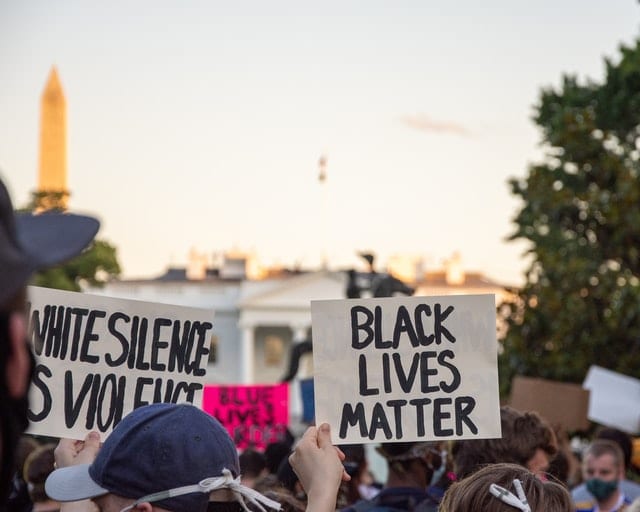As Americans, we have a choice in nearly everything. From where we live to what kind of car we drive; from what cell phone carrier we use to what brand of running shoes we purchase; hell, the sheer range of variety in the cereal aisle can trigger a full-on anxiety attack. Our lives are a buffet of options, nearly everything we touch tailor-made to our beliefs, convenience, or personal aesthetic.
That’s not entirely a bad thing. In some ways, it is a reflection of progress and a robust economy (sometimes, ish). But it’s a shift from previous generations, when folks generally tended to stay in the places in which they were born, do what their parents did, exhibit lifelong brand loyalty in major purchases (were you a Chevy family, or a Ford?) and listen to the one T.V. or radio program that was on each evening.
I know I’m burying the lede here, but hang with me. Somewhere along the way– probably somewhere around the time folks started being able to pick and choose their media outlets– white American Christians started approaching their church experience with the same mentality that we bring to everything else. Rather than settling into a worshipping community based on the tradition we were raised in, the people we have relationships with in our community, or proximity to our home, we began to go “church shopping.” Literally carrying around a bullet-list of things we are looking for, from the music to the preaching style to how convenient the worship times are for our schedule. Do we like the coffee here? Check. Inspired by the architecture? Check. How’s the lighting? The font on the bulletin? Can I get from here to my favorite brunch place before the Sunday rush?
We’re being hyperbolic now, but you get the gist. We approach church like consumers, because that’s what we are in nearly every other area of life. And again, sometimes choice is good. We should all be able to find a church home that “checks our boxes,” at least in some fundamental ways. But over time, this shift has transformed the role of church in our lives. Rather than a place to go and be shaped, influenced and– dare I see even, transformed?– most of us now seek a church where we can go and be affirmed in what we already believe.
At what point do we decide we aren’t going to be influenced by our church any more? At what point are we only shopping for that which comforts and assures us, rather than that which confronts and challenges us?

Our American churches are buckling under the weight of ideological divides, there is no denying that. But I’m starting to wonder if the issue that will finally break some of our predominantly white communities is racism. Because here is what I’m seeing from the experience of the mainline clergy that I know, and what I know from my own experience: you can’t preach about racism without making white folks mad.
“You’re being too political,” is the answer from the pews. Translate– this conversation is not part of the package we chose when we purchased our membership here. As if the full humanity of our black brothers and sisters is up for discussion; as if Jesus himself was not about tearing down the death-dealing systems of Empire; as if ‘politics’ is a thing that happens on television, and not in the lives of our neighbors. And, side note here, if you think racism is a partisan issue, then you’ve clearly got an idea of who is “for it,” and who is against. So if you don’t want to hear about racism in church–does that mean you have chosen the side that is for it? If so, I invite you to sit with that for a moment.
Another popular retort is, “You’re showing your own hatred,” when the pastor calls out the racist speech or policies of a leader. “You’re showing your own hatred…” As though naming the evil is more sinister than the evil itself.
“You’re being racist against whites.” Lord. This one, though. As if the whole world in which we live has not been built by and for whiteness; as though every corner of our lives has not been constructed to protect white power. You would think naming the oppression we see somehow does injustice to the oppressor.
Well.
Pastors preaching a faithful word about racism are often confronted with this type of gaslighting. Their prophetic words are met with dismissal and manipulation because they have triggered a deeply uncomfortable place in the hearts of the people. But to be fair, we have not built the church as a place where folks can meet their discomfort; we have built sanctuaries of comfort and complicity, rather than communities of transformation.
For this, we need to ask forgiveness. And I do mean “we,” meaning also me. In the spirit of restitution, we cannot stop preaching this difficult word in this critical time–even when that word does not go over well. If anything, that moment of tension is precisely the time to double down–with love and compassion, of course–but also with the deep conviction of knowing that the gospel is behind us.
Our brothers and sisters of color are literally taking to the streets, asking that we stop killing them. If the Church’s answer begins with “but…” then we are doing it wrong.
It may be a hard and uncomfortable time to be a white Christian. But it is time for the church of Jesus Christ to sit with that discomfort–maybe even to kneel in it– knowing how much more “uncomfortable” it is to be a person of color in this country; and recognizing that the Church has played a role in the violence of inequality.
It is time to love and lead in another way; to be transformed by the gospel, and not just seek the confirmation of our own convictions.
If the people cannot bear to hear the hard truth of racism, then our gospel is not the way of Jesus– it is the canon of complicity. Otherwise known as white supremacy. This is where we find out who it is we’ve come to worship. This is where we find out if our gospel can really stand up true where it matters. And if not– if racism is the thing that finally undoes us–it won’t be an allofasudden kind of thing. Racism is a sin and a sickness that has been at work in our walls and our halls for centuries. Eating away like termites in the foundation. In many ways, that particular ill is at the heart of every other fight we’ve ever had in the church; every other question of who’s in and who’s out, who belongs and who doesn’t, where the money goes, who’s in charge, and how much do we have to give– really, how much can we be expected to sacrifice?– to be assured of our righteousness?
Perhaps it is no coincidence that this new wave of the movement for justice has come at just this moment– when we have been banished from our sanctuaries and quarantined with our questions, our doubt and our discomfort. We are already reinventing everything. We are already rewriting the story of who we are. Maybe this new story will have some new truths to tell.
Maybe we can finally be transformed.












